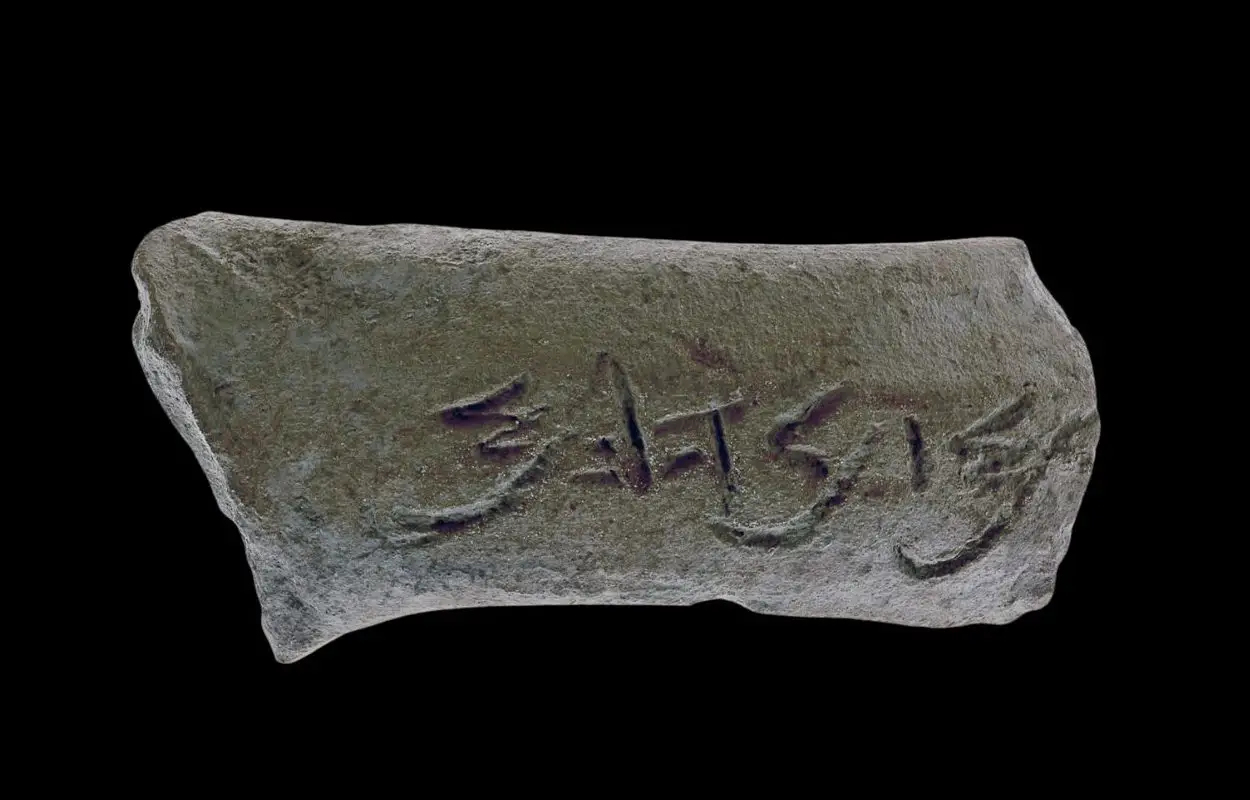Archaeologists from the Israel Antiquities Authority (IAA) have uncovered a jar handle bearing the name “Menahem” during excavations in the Ras el-‘Amud neighbourhood of Jerusalem, Israel.
The handle was found in an ancient settlement dated to two periods of occupation: the Middle Canaanite period (2200–1900 BC), and the end of the First Temple period (8th–7th centuries BC).
According to a press release by the IAA, the handle dates from the latter and was part of a storage vessel stamped with the Hebrew name “Menahem”, an expression of condolences alongside the name of “Yinahem” – which are possibly related to the death of family members.
The name Menahem is known from the corpus of Hebrew or Phoenician names, and seals bearing this name have been found in Israel, Assyria, Cyprus, and Egypt.
Menahem was also the name of a king of the northern Israelite Kingdom of Israel who founded the dynasty known as the House of Gadi or House of Menahem.
During Menahem’s reign, the Assyrians first entered the kingdom of Israel, and had also invaded Aram Damascus to the north-east. To maintain independence, Menahem was forced to pay a tribute of a thousand talents of silver which is recorded in an inscription by Tiglath-Pileser III.
Dr. Ron Beeri, excavation director on behalf of the Israel Antiquities Authority, said: “This important find joins similar names that have been found in archaeological excavations in the Ancient East and in Israel in particular.”
Such names can be found during the Canaanite period and on pottery attributed to the 18th Dynasty in Egypt, but the jar handle is the first example found in Jerusalem to date.
Header Image Credit : Israel Antiquities Authority





